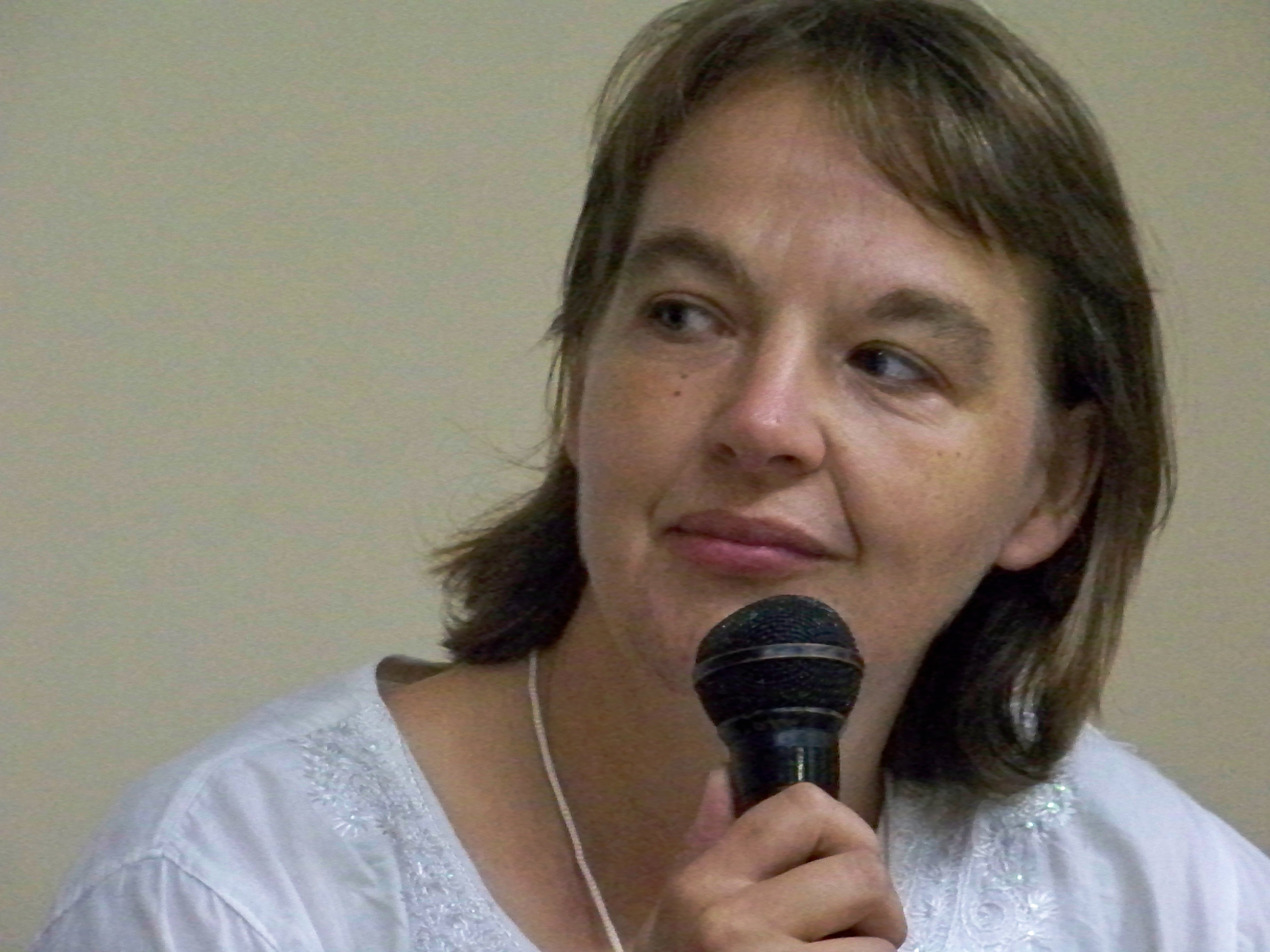This video features Ivaneide Bandeiras of Kaninde.org.br speaking (Portuguese with English subtitles) at the World Social Forum in Belem, Brazil on the Rio Madeira hydroelectric dam complex being developed as part of IIRSA in South America and the impacts on on local indigenous populations.
Part 2
Repeatedly sounded was the ‘what we have here is a failure to communicate‘ theme. John Ashton addressed this concern at a press conference at the Climate Congress:
“Words mean different things. The word ‘uncertainty’ to a politician often means, come back and tell me when you know whether this a problem or not and that’s when I’ll look into it. Uncertainty to a scientist often mean there’s a signal, but there’s an error, an uncertainty in the amplitude of that signal. We don’t know quite how big that is, it may be four and it may be six, and there are plenty of people in the political world, who are quite happy to abuse the rigor that scientists bring to the ways in which they communicate, to serve political purposes which are not necessarily those which the communicators were intending to serve. Politics is a shark infested sea in that sense. My conclusion is, the more effort that people put into understanding not just what they are trying to say, but how it will be heard, how it might be manipulated and made mischief out of, the better the communication will be. Because in the end, we need a much better sense in our society of the urgency of this problem – we haven’t begun to close the gap between what the climate tells us we need to do and what we feel we’re capable of doing.”

See the full text of John Ashton’s plenary address.
Other speakers also contributed to the ‘failure to communicate theme’, including: Professor Lord Nicolas Stern, March 12, “One of the reasons they [the economists] got it wrong is because you [the scientists] didn’t tell them loudly and clearly enough”
]]>‘OFTEN mocked for an endless ability to disagree with itself, the World Social Forum—an annual jamboree for NGOs, anti-capitalists, leftish intellectuals, bohemians and bishops—was unusually united this year. More united, in some ways, than the recent World Economic Forum in the Swiss resort of Davos, a gathering of political and corporate bigwigs to which the social forum supposedly responds.’
via A gathering of the global counter-culture | Dear capitalists, admit you got it wrong | The Economist.
]]>Of the myriad issues addressed at the World Social Forum this year, climate had both the first and last word, beginning with the Amazonian downpour which drenched the opening parade several days ago, and ending with today’s heavy rainstorm just prior to the final meeting, the ‘assembly of assemblies’, where the remaining participants gathered in a wet and muddy grass field to listen to the spokespersons from the many issue groups announce their conclusions from several days of discussions.


YouTube video of closing report from the Palestian issue group (English with Portuguese translation)
]]>“BELEM, Brazil (AFP) — The World Social Forum was wrapping up in Brazil on Sunday amid criticism that lack of organization prevented participants from reaching common solutions to the global economic crisis and other issues.”
via AFP: Solutions to crisis elude ‘disorganized’ World Social Forum.
]]>World Social Forum 2009, Belem, Brazil.
The events at the UFRA University can be very far apart and as one ran late today there wasn’t time for one envirobeat.com blogger to make the 45 minute walk between locations. Local bicyclist/taxis can be hired to speed you to your destination, well, except for the fact that thousands of social activists are filling the only road. This video features that ride though the crowd and past one of the tent cities to give a feel for the scene on the ground, an especially useful view for those who didn’t want to fly out to Brazil and leave that big floating carbon footprint for future generations. ]]>
‘The “alter-globalization” movement gathers in Brazil at a moment of crisis in the system it has long opposed.’
]]>
Tom Goldtooth, Navaho/Dakota: “Climate change is a very serious issue, especially when we look at how certain communities across the world are disproportionally effected…the most impacted are the poor people, the disenfranchised.”
Jutta of FERN: “Some of the dirtiest polluters in the Global South have found a way to use these carbon markets”
“This carbon market has already created a whole new industry… and you have brokers … who have speculative capital to invest.”

Michael Karikpo, Environmental Rights Action/Friends of the Earth, Nigeria:
“The best way to address the climate change issue … is to stop the extraction of carbon from the ground.”
“We see this [oil extraction in Nigeria] as a continuation of colonization, a continuation of inequalities that exist around the world.”
“You need to come to Niger Delta. You need to see the level of destruction.”
“We built solidarity…It was solidarity the set off the Niger Delta struggle that you hear about today.”

Ben Powless, Indigenous Environmental Network
“I think the solution revolves around several simple concepts that we can all agree on: respect, democracy, justice.”

The morning walk of the participants to the days events spread out across the University jungle-like landscape along the banks of the Amazon River in Belem, Brazil.
Even more tents were to be seen crowded along the sides of the road to help accommodate the many participants which have filled local hotels to capacity. ]]>
